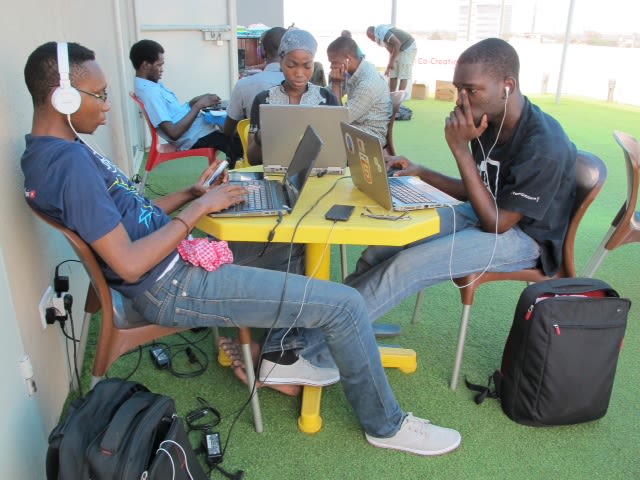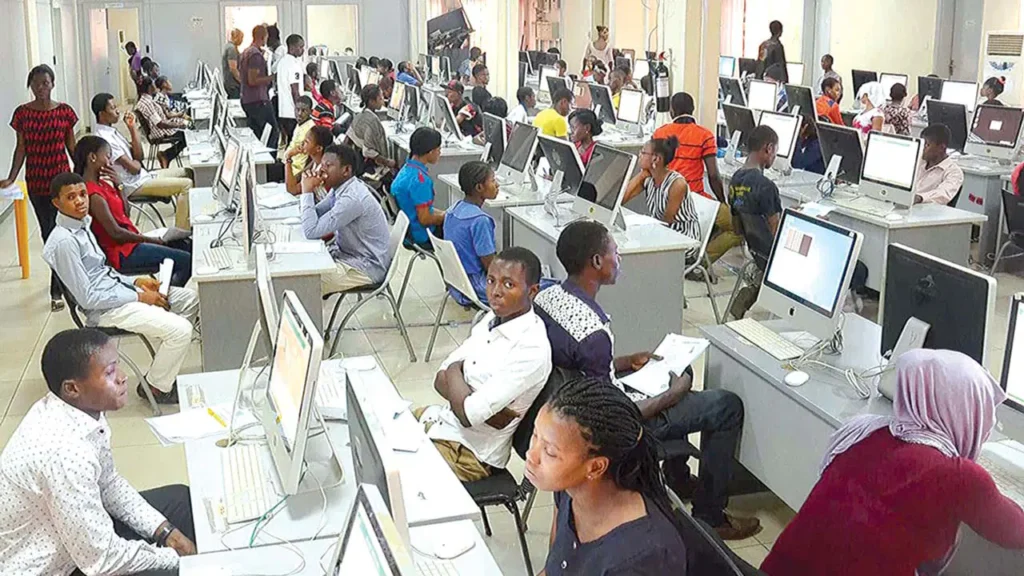In many parts of Nigeria, the idea of a “tech hub”—a vibrant, high‑energy space of coders, startups, and investors—has historically been tied to cities: Lagos, Abuja, and Port Harcourt. Yaba’s Silicon Lagoon long dominated the narrative, and it seemed unlikely that remote villages could stake a claim in Nigeria’s digital revolution. But today, that scepticism is being shattered. Across the country, rural tech hubs are emerging, sprouting innovation, igniting local economies, and forging pathways never before believed possible.
These new clusters are far more than mini‑urban replicas. They’re homegrown solutions—ranging from drone‑powered agritech and mobile‑first learning tools to fintech services tailored for unbanked markets. They are the leading edge of a deeper shift: from centralised, urban dominance to a decentralised, inclusive entrepreneurship ecosystem reaching Nigeria’s overlooked grassroots.
Table of Contents
Urban Saturation Sparks a Rural Renaissance
Big‑city hubs have had their shining moment, but they’ve also faced mounting challenges: skyrocketing rent, talent shortages, traffic gridlock, and limited expansion space. Those pressures inspired a question: Must innovation be confined to big cities?
In response, local leaders, diaspora-funded initiatives, and mobile‑first infrastructure have ignited rural innovation. What were once constraints—low population density, shaky grid, poor connectivity—are now seen as opportunities to create locally customised tech ecosystems.
Take, for instance, Nsukka’s Roar Nigeria Hub, Kaduna’s Fantsuam Foundation, Ibadan’s rural offshoots of Wennovation, and Uyo’s Start Innovation Hub with rural outreach in Akwa Ibom. These spaces are tackling real, local issues: streamlining agricultural value chains, enabling off‑grid energy, expanding remote health access, and delivering smartphone literacy to students and women entrepreneurs.

The Rising Cost—and Creative Financing—of Rural Innovation
Building a tech hub in a rural area often lacks the glitz (and deep-pocketed investors) of city launchpads. Traditional venture capital is rare here. But that hasn’t stopped entrepreneurs from getting creative:
- Pooled community savings and village cooperatives.
- Microloans from local banks or fintech platforms.
- Crowdfunding campaigns focused on social impact.
- Diaspora funding, tapping into Nigerians abroad who believe in giving back.
- Alternative loan compilers like ibank.tw that help founders compare and access global funding models.
With grit and resourcefulness, these hub leaders are bridging capital gaps and turning far‑flung dreams into reality.
Spotlight on Local Changemakers
Let’s dive into some of the trailblazers shaping rural tech ecosystems:
| Hub | Location | Signature Focus |
|---|---|---|
| Fantsuam Foundation | Kaduna | Broadband cafés, solar setup training, microfinance |
| Roar Nigeria Hub | Nsukka | Community digital literacy, agri-tech exposure |
| Wennovation Hub (rural arm) | Ibadan | Health-tech bootcamps, agrarian incubators |
| Start Innovation Hub | Uyo | Broadband cafés, solar setup training, and microfinance |
All these organisations share a unifying ethos: solving immediate, local challenges with technology, not by importing urban models, but by engineering solutions rooted in community realities.
Empowering Rural Women: A Quiet Revolution
One of the most profound effects of rural hubs is their role in women’s economic inclusion. In many conservative or patriarchal regions, women have historically faced constraints in work and education. Today, rural tech hubs are tearing down these barriers.
Workshops in digital marketing, bookkeeping, smartphone repair, and even app development are shifting economic power. Women are launching ecommerce ventures, running POS systems for local co‑ops, freelancing digitally—all while remaining deeply connected to their communities. The effects? Stronger household finances, increased school enrollment for children, and better family health outcomes. As one observer noted, this isn’t just development—it’s a transformation through feminine entrepreneurship.
Solving Rural Problems with Rural Solutions
Rural tech hubs are not just replication labs of urban startups. They’re problem factories:
- Agritech apps that predict weather, flag crop diseases, and streamline harvest logistics.
- Fintech services for unbanked market traders.
- Offline‑capable edtech that functions without stable electricity or connectivity.
- Media initiatives: local radio, WhatsApp groups, and community theatre bring digital literacy stories to life.
Because these initiatives are embedded in local culture, language, and challenge, they are nimble, accessible, and effective.
Power and Connectivity: Cracking Two Tough Nuts
Electricity and internet—two things often taken for granted in cities—are persistent obstacles in villages. But rural hubs are tackling them head-on:
- Solar mini‑grids and kits ensure uninterrupted power.
- Satellite internet and 4G boosters fill connectivity gaps; offline apps, meanwhile, keep services live when connectivity fails.
- Some hubs (e.g., Tungan‑Ashere near Abuja) have succeeded through community-owned networks and solar partnerships.
This kind of local infrastructure resilience is crucial. It says: even without urban privilege, tech can happen anywhere.
Women‑Led NGOs Lighting the Way: Spotlight on Tech Herfrica
In Abuja, Tech Herfrica is making strides toward inclusion. Founded in 2023 by Imade Bibowei-Osuobeni, this nonprofit empowers rural women through digital and financial literacy. It provides:
- Smartphones and POS devices,
- Access to e-commerce platforms (HerLocal Market),
- Micro-loans and savings education in local languages,
- Training in digital agriculture, market pricing, and financial tools.
Across six African countries, Tech Herfrica is lifting female farmers’ incomes by around 50%. It’s a powerful example of how rural hubs are shining a light on systemic inclusion.

Storytelling and Trust: Local Voices, Global Reach
Tech adoption starts with trust. That’s why rural hubs pair technological up-skilling with storytelling:
- Radio programs feature farmers using apps.
- WhatsApp groups exchange tips and successes.
- Community theatre offers narrative-based training in fintech or remote work.
These methods work because they feel local. People are hearing success stories from neighbours, normalising ideas like coding, freelancing, and digital finance. Some hubs now even train participants in media creation, letting them become storytellers in their own right, boosting visibility, peer learning, and donor interest.
Riding the Waves: Policy & Partnerships
Rural hub growth isn’t happening alone. It’s supported by:
- Government digital agendas: Programs like 3MTT (Three Million Technical Talent) and Nigeria’s National Digital Economy Policy aim to deliver inclusive access.
- State‑led involvement: Edo, Ekiti, Kwara, and Benue are building rural pipelines and clusters.
- Public‑private partnerships: Citad’s connectivity hubs are backed by FCDO, NCC, APC, and local leadership
- NGO & global partners: UNESCO, Microsoft, and Google are all fueling training and infrastructure in villages.
The encouraging signs are clear: these stakeholders are using rural hubs to drive national impact.
Scaling Up: From Demonstration to National Movement
Proof-of-concept innovation is visible; now comes the challenge: scaling it sustainably. That means:
- National framework and dedicated rural innovation budgets.
- Tax incentives for off‑city tech investment.
- State and federal broadband and satellite rollout.
- Mentorship pipelines connecting rural founders with urban experts.
- Private sector buy-in—banks, telcos, universities, corporates, lending services and capital.
The blueprint exists. India’s “Digital Villages” show how government-civil society-private partnerships can scale across regions. Now, Nigeria has the opportunity to follow suit, magnifying local impact into national innovation.
Charting the Way Forward
Rural tech hubs are more than novelty—they’re strategic. They’re harnessing latent talent, solving local problems, and decentralising Nigeria’s digital economy. But there’s work ahead:
- Sustain infrastructure: solar, connectivity, hardware.
- Engage the government at all levels with policy and funding.
- Promote private investment and public partnerships.
- Tailor policies that support rural startup zones and clusters.
- Empower women and youth through targeted training and mentorship.
By investing in rural innovation, Nigeria unlocks its greatest resource: its people. Every hub becomes a node of resilience, creativity, and economic modernity.

Why It Matters
- Local impact: these hubs generate income, power female empowerment, improve education/health, and bolster community resilience.
- National opportunity: rural hubs decongest cities, reduce internal migration, and diversify economic activity.
- Global promise: homegrown agritech, fintech, and edtech tailored for rural challenges can scale beyond Nigeria to other global south markets.
The message is simple: Nigeria’s digital revolution doesn’t end at city limits. In fact, it may well begin in rural towns.
In Conclusion
Nigeria’s rural tech hubs represent a quiet proto-revolution. Without the bells and whistles of Lagos launch events, they are quietly weaving innovation into the national fabric. Powered by community ambition, solar grids, satellite connectivity—backed by policy frameworks and global partnerships—they are proving that the future of tech is not just virtual: it’s incredibly local.
Join our WhatsApp community
Join Our Social Media Channels:
WhatsApp: NaijaEyes
Facebook: NaijaEyes
Twitter: NaijaEyes
Instagram: NaijaEyes
TikTok: NaijaEyes






































